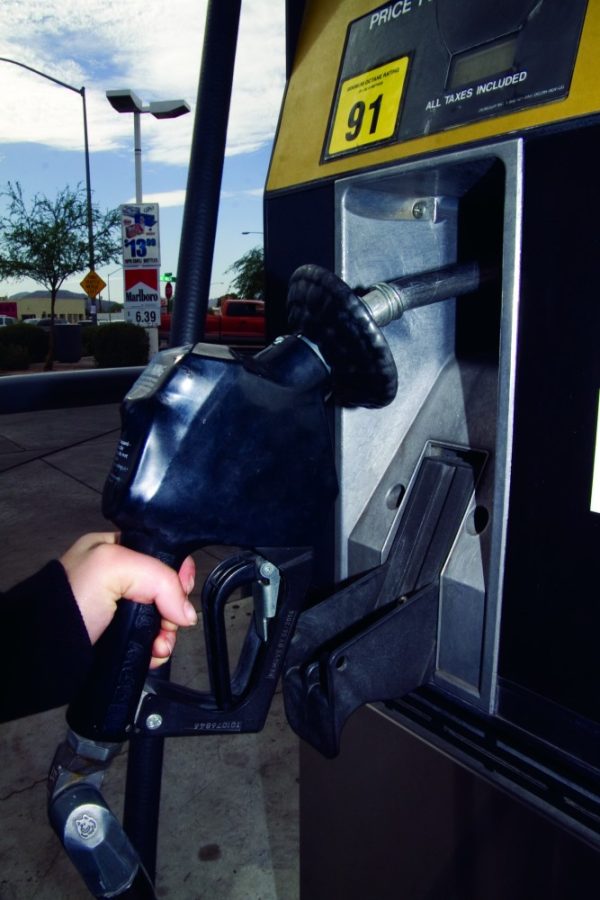Dirt and germs may be the last things on your mind while pumping gas into your car or drawing money out of an ATM, but it could be a time to apply hand sanitizer.
Recent studies have shown that gas pump handles are the number one dirty surface that people touch in their daily lives. After gas pumps are mailboxes, ATM buttons, parking meters, crosswalk buttons and vending machine buttons. Dr. Chuck Gerba, a UA professor of environmental microbiology, said these surfaces are contaminated because they are constantly being touched by lots of different people each day.
“Nobody ever really cleans those objects,” he said. “We’re trying to identify those areas that we might want to target for cleaning and disinfecting maybe on a more regular basis.”
Gerba has been researching germs for more than 20 years, and a lot of his studies have centered on ATMs. He said the ”enter” button is the “germiest” button on the machine. Bacteria found on ATMs can also cause skin infections, according to Gerba.
Researchers use ATP meters, a hygiene monitor, to detect how dirty something is, but not necessarily how germy it is, Gerba said.
“The device they use picks up any kind of organic matter including bacteria,” he said.
In 2005, Gerba performed research on a bodily fluids study that was published in the International Journal of Environmental Health Research. The collected data indicated that traces of saliva, sweat, mucus, feces and blood can be found on many of the previously mentioned surfaces. Studies haven’t identified specific bacteria, Gerba said. What researchers do know is that one site may be more contaminated than another. The probability of there being bacteria on objects such as gas pumps, ATM buttons and mailboxes goes up because they are dirtier.
“I touch door handles going in and out of classrooms a lot,” said Antonia Basilio, a management information systems junior.
Basilio said she washes her hands frequently and uses a paper towels to open bathroom doors. But, she said she knows not all people are conscious of germs and washing their hands.
Shopping mall escalators are another filthy surface. Hundreds of people use them every day, Gerba said.
“Every time you touch a contaminated object or a dirty object, you have potential of picking up germs on your hands,” he said. Gerba said people should avoid putting their hands on their face because it can lead to “transmission of microorganisms.”
Germs on the hands can then be transferred to the nose, mouth and eyes. Cold and flu viruses are easily transmitted that way, he said.
Average college students put their fingers on their face about 16 times per hour, Gerba said. In comparison, children under two years old do it about 81 times per hour.
“People always do it without realizing it,” he said, adding they tend to put their hands on their face when they yawn or try to stay awake by rubbing their eyes.
Eighty percent of common infections such as the cold, flu and diarrhea “are transmitted through the environment … That’s air, water, food and surfaces that you touch,” Gerba said.
Arora Nidhi, a management information systems junior, said she carries hand sanitizer with her all the time and washes her hands enough to the point where she thinks she won’t get sick.
“I know keyboards are pretty nasty, like at public libraries,” Nidhi said.
Basilio said it would be nice to have disinfectant wipes at gas stations so people could use them after touching gas pumps. People don’t normally think of washing their hands afterward because they just get back in the car, she added.









